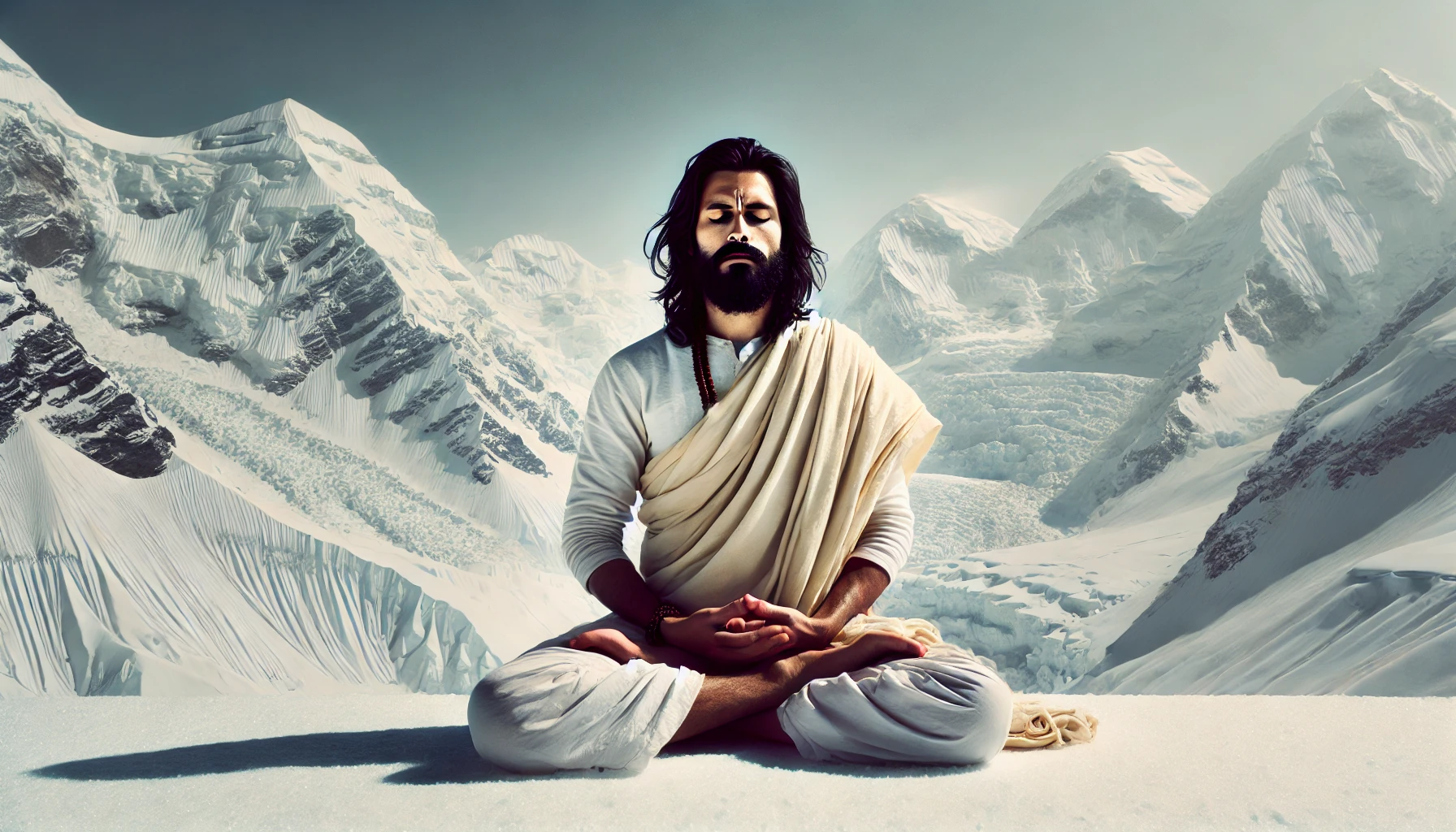
Purpose of Meditation
1 year ago By Yogi AnoopPurpose of Meditation
When a person enters the state of meditation, the primary objective is to stop their voluntary activities. Voluntary activities refer to all those actions associated with the sensory and motor organs. I consider these activities as voluntary because they are driven by desires. For instance, in the waking state, a person is always engaged in something. However, in deep sleep, these senses become calm and inactive.
There is a common belief among people that meditation means stopping involuntary activities, i.e., halting the natural functions of the body and senses. This includes stopping the heartbeat, ceasing the functioning of the lungs, holding the breath, or permanently eliminating the body's need for food.
However, practical philosophers and advanced practitioners of meditation have always emphasized that meditation is the cessation of voluntary actions. It is essential to note that stopping voluntary actions does not imply that the eyes should cease to see, the nose should stop breathing, or the mind should come to a complete halt forever. This is not the case. In my experience, such cessation can only be achieved temporarily. Voluntary muscles are essential for daily functions, and without their engagement, the body's sustenance is not possible. For example, even chewing food falls under voluntary activities, as food cannot chew itself automatically. Therefore, a permanent cessation of voluntary activities is neither feasible nor practical.
According to my experience, in meditation and yogic philosophy, voluntary activities are halted in a way similar to how the body enters a state of deep sleep for a few hours. In deep sleep, all senses become naturally calm, and no movement occurs within them. I always say that if a practitioner can achieve this state while being awake, it is called meditation.
In sleep, there is no self-awareness, but in meditation, although the senses reach a deep state of calmness, there is still self-awareness. It is a real-time experience of halting the senses. In this state, the practitioner feels all parts of the body in real-time and in the present moment. During this period, as the thoughts subside, one can observe how the body naturally heals itself through its involuntary actions. All parts of the body become relatively free from the senses, and in this state, "I" also temporarily liberate myself from the senses and the body through cognitive abilities.
In conclusion, through meditation, the voluntary muscles are relaxed and calmed. It is crucial to understand why it is necessary to relax and calm these voluntary muscles. Since this discussion focuses on the significance of meditation and the effects of mental interference, we must acknowledge the fact that human beings develop a harmful habit of mental interference to such an extent that they start forcing their own bodies. For instance, deciding how much to eat, how much weight to maintain, and how long to sleep can cause stress in the body.
The habit of constant mental interference affects the body's natural processes, which can be seen as a control over voluntary activities. Even those who exercise regularly sometimes consciously interfere to keep their bodies in an exercise state. If the mind continuously pulls the muscles, it indicates excessive mental interference. This leads to the disruption of the body's natural rhythm. Even involuntary muscles such as the liver, stomach, heart, and lungs get affected.
When one constantly puts pressure on voluntary muscles, involuntary muscles also start getting unnaturally impacted. Therefore, nature has established a rule that a person engages in natural activities throughout the day and enters a state for 6-7 hours daily, where voluntary activities are minimized.
In the state of meditation, the voluntary activities of the mind decrease significantly or cease altogether, allowing a person to experience deep satisfaction. This state can be described as self-contentment, where one experiences an internal realization. During this period, the hormonal secretion is extremely pleasant and challenging to describe in words.
Therefore, the true purpose of meditation is to stop the voluntary activities of the mind. The issue arises when people, through Hatha Yoga and Raja Yoga, try to stop even the involuntary activities of the muscles, such as halting the heartbeat, ceasing eating, and claiming to achieve immortality. Such beliefs and efforts can create confusion and misconceptions.
Recent Blog
Copyright - by Yogi Anoop Academy
